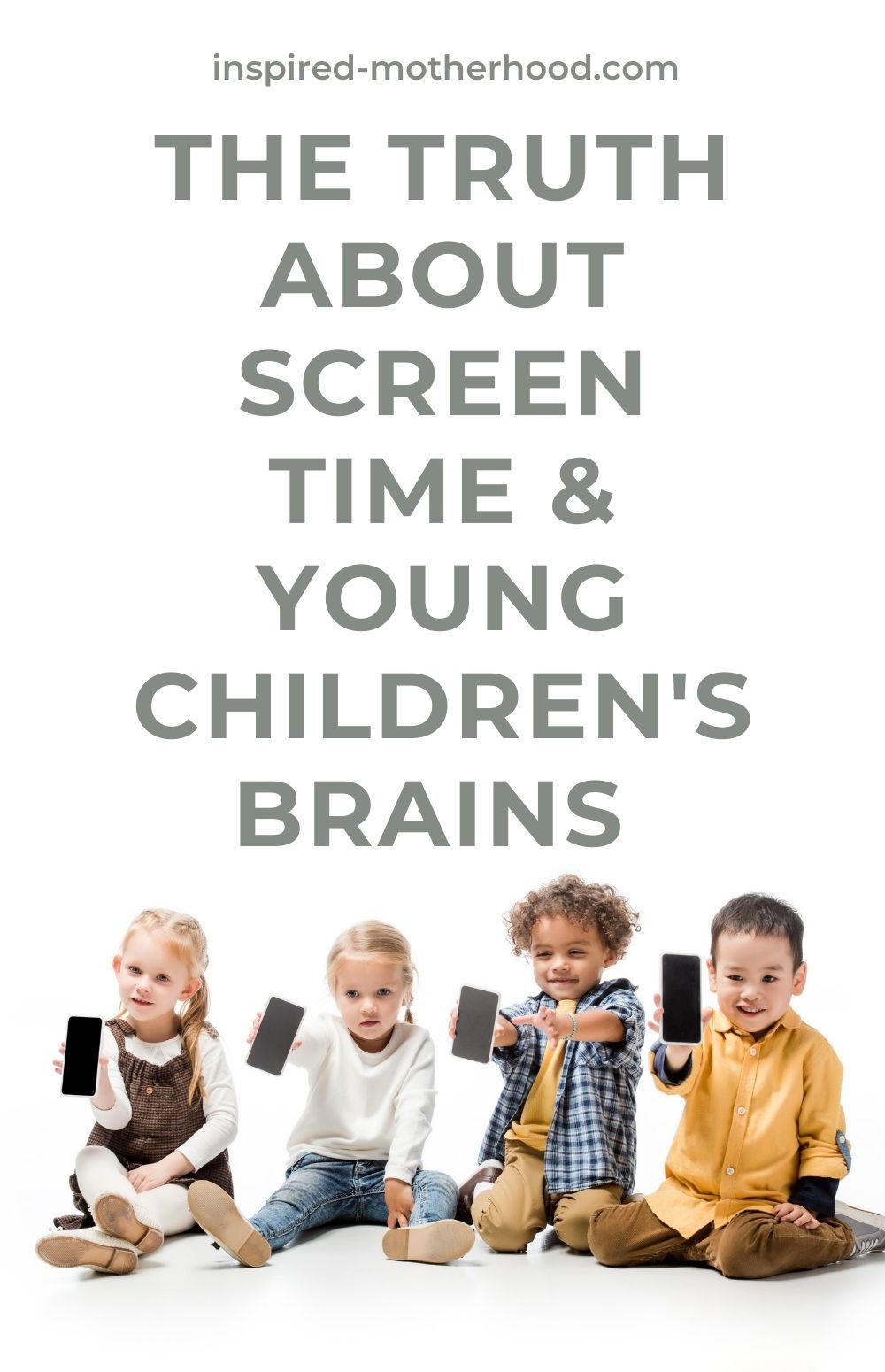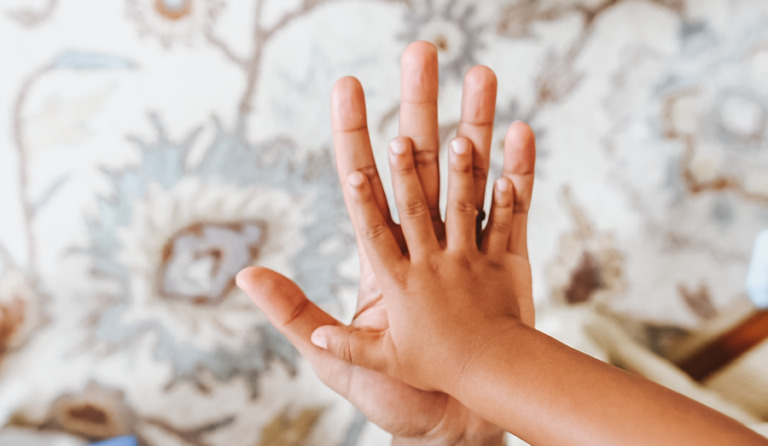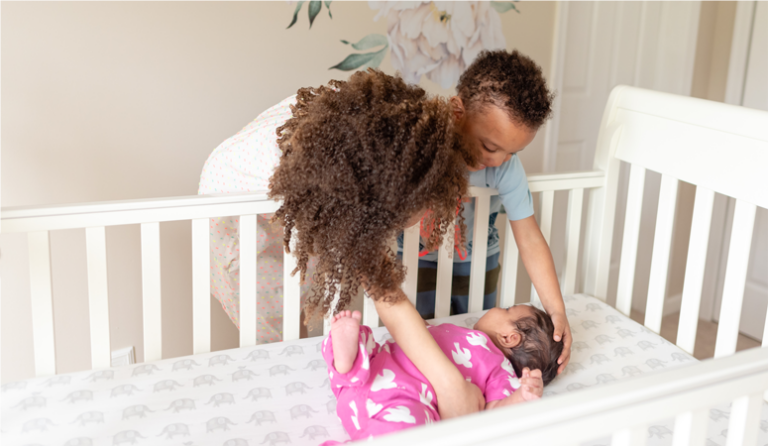The Truth About Screen Time and Young Kid’s Brains
Are you a screen free family? We’ve taken screen breaks through the years (I share my thoughts about taking a week off from all screens here), but I’ve found a little bit of carefully curated screen time works well for our family.
With a Master’s Degree in School Psychology and three years studying human development, I’ve written this post to share with you the latest research on screens and young kids. Then you can use the information to make the best decision for your family when it comes to screen access.
First, Screens and Babies…
We tried our best to prevent TV time until the age of two with all our children. With each child, it became increasingly difficult, but overall we tried to stick to very limited screen time.
Why?
Because from a developmental standpoint, kids younger than two cannot take full advantage of the learning opportunities provided by TV or videos.
Too much stimulation can overwhelm our children and the learning benefits just aren’t there yet. Screens for babies are not beneficial and they can actually be detrimental at this age.
JAMA Pediatrics published a study in 2019 that followed the early development of 2441 mothers and children. The study found higher levels of screen time in children aged 24 and 36 months were associated with poor performance on a screening measure assessing children’s achievement of development milestones at 36 and 60 months, respectively. (Source)
Excessive screen use in young children limits optimal cognitive and social and emotional growth.
The American Academy of Pediatrics recommends no screen at all for children until they are 18 to 24 months of age. They make an exception for video chatting. Additionally, the AAP recommends under an hour of screen time each day for the children the ages of 2 to 5. (Source)
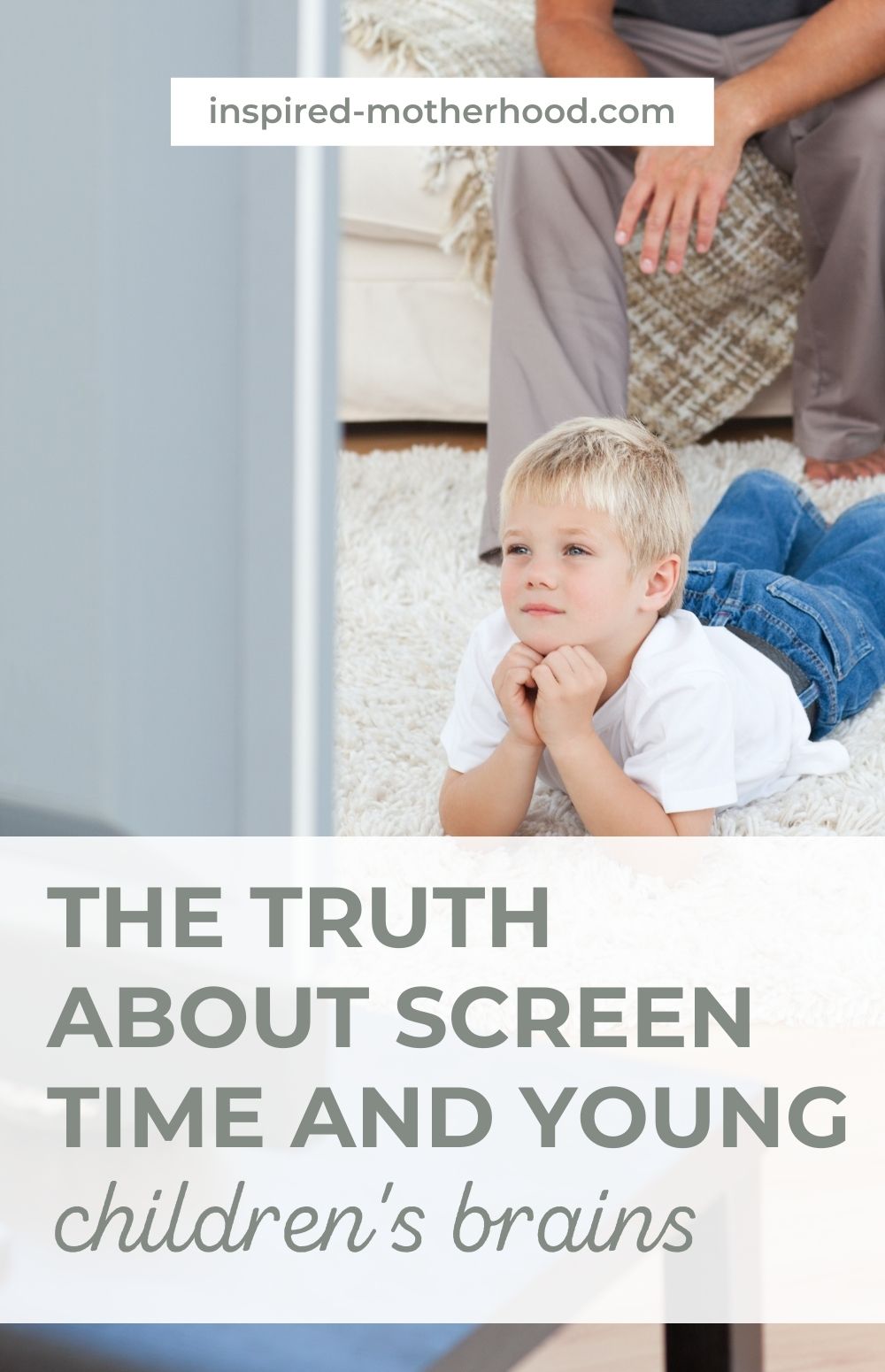
I understand no screens may be difficult for some families. Do not beat yourself up if you struggle with it, but be aware of the research. Just because you watched a lot of screens in the past does not mean you have to do it moving forward. Start fresh and learn to set firm boundaries with your family.
At first your children may whine and complain when you set screen boundaries, but with time and patience you’ll see their imagination flourish as they find new ways to play. Boredom is not always a bad thing.
Okay, so if you decide to add screens to your young children’s routine, which shows are best?
Which Shows Are The Best for Young Kids?
Not ALL screens are bad. After the age of two, screens can be used for educational purposes. A study in the Journal of Children and Media in 2016 found preschoolers who watched Daniel Tiger showed higher levels of empathy, self-efficacy and emotional recognition after watching 10 episodes.
The highest benefits were seen when parents talked to their children about the show and were involved in the process
As parents we can decide to do no screens, but if we do choose screen time, let’s choose the shows wisely.
I highly recommend Daniel Tiger, Sesame Street and Mr. Rogers Neighborhood (free on Amazon Prime). These 3 shows have been researched in the past and showed improvements in emotional intelligence after watching.
One more thing to note about these programs. They tend to be slower paced. You may be thinking, so what?
This matters because slow paced action and easy to follow narratives are associated with improved executive function and gains in vocabulary (Berk, Laura E.. Development Through the Lifespan. Seventh edition. Hoboken, NJ: Pearson Education, Inc, 2018.).
What’s the big takeaway here? It matters which types of shows your children are watching.
And you can boost the educational value by talking about the show and the action with them during or after the episode.
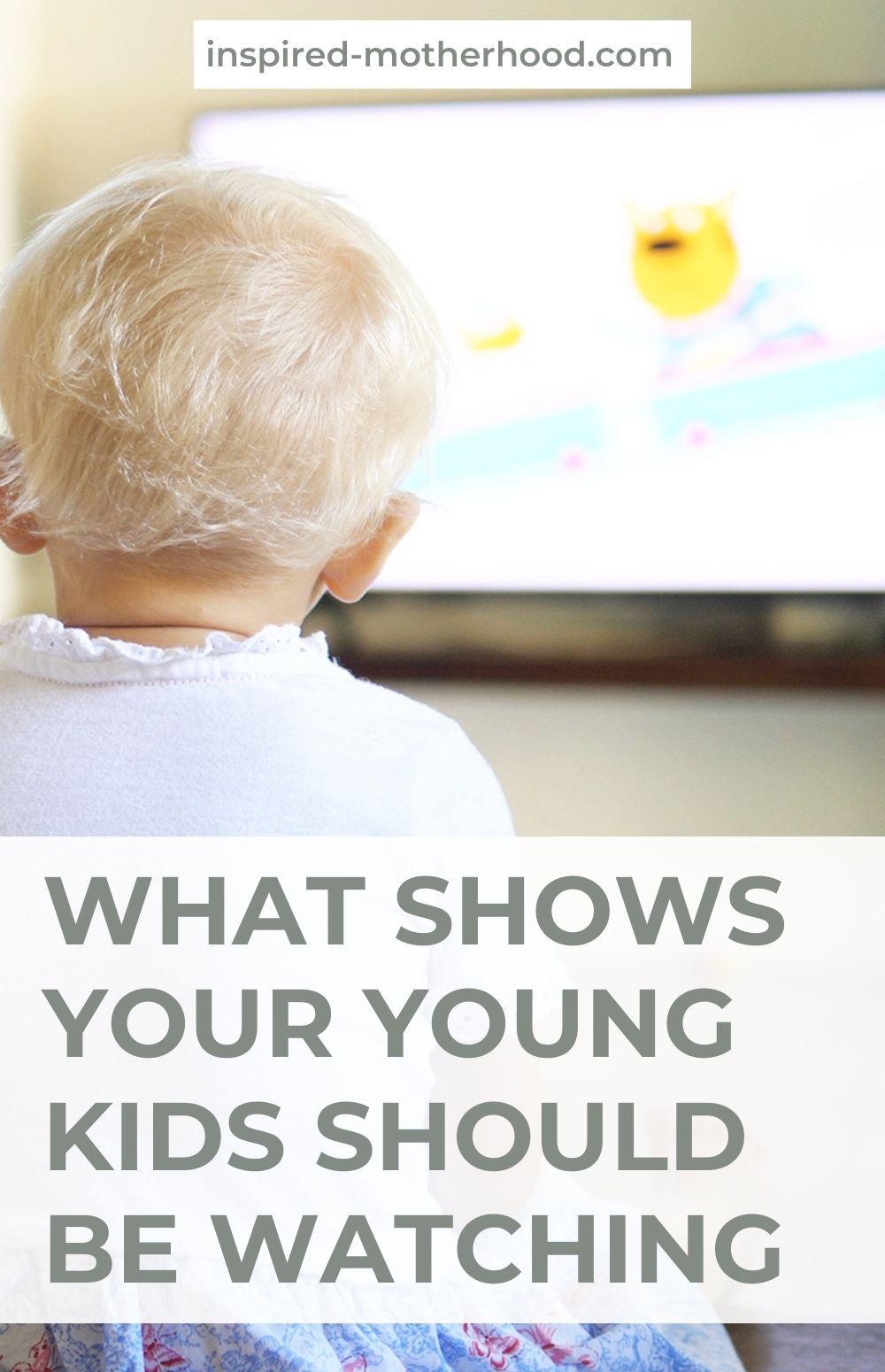
One Final Thought
I highly recommend watching the show first. We are not always in the room when our older children (over 5) watch TV. So we want to make sure it’s appropriate for them developmentally and spiritually by previewing the show first.
We are very selective about the shows our children watch because it not only feed their minds, it can feed their spirits/souls.
Lastly, in the video below I talk about another benefit of being choosy over the shows your kids watch. TV shows with rich social cues are best as teaching tools.
How about your family? How do you handle screen time?
What tips would you give to a family who is wanting to set firmer boundaries, but isn’t sure how? I’d love to hear from you in the comments below.
Read This Next:
- 10 EASY Social Skills Activities to Build Social Emotional Development
- What is Emotional Intelligence? A Guide for Parents of Preschoolers
- Discover a Brilliant New Way to Build Your Child’s Self-Esteem
